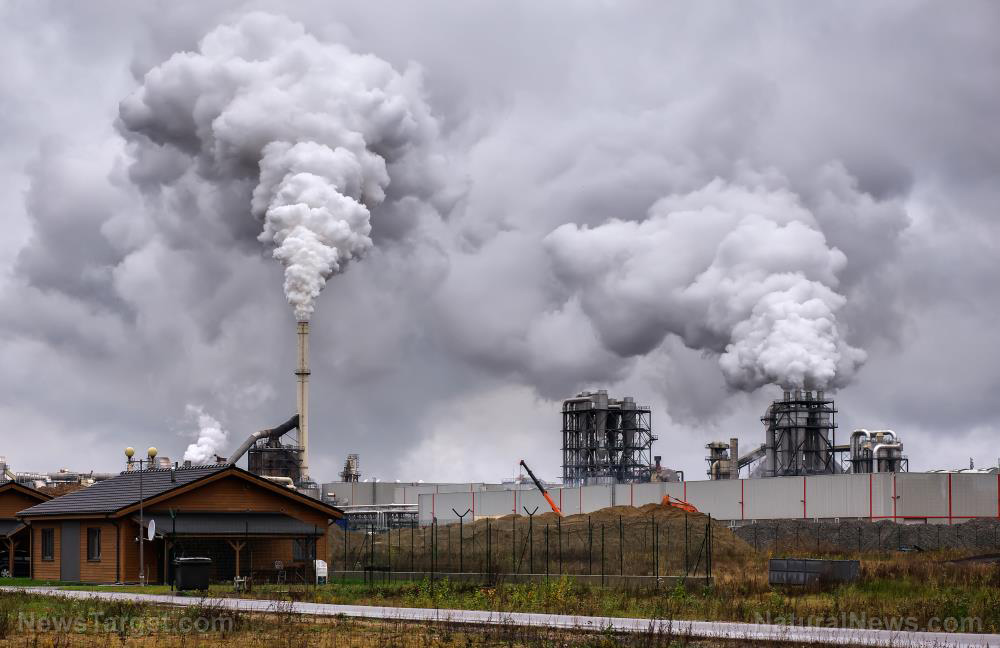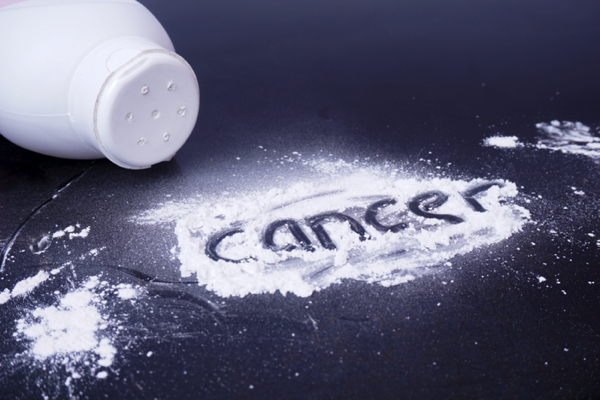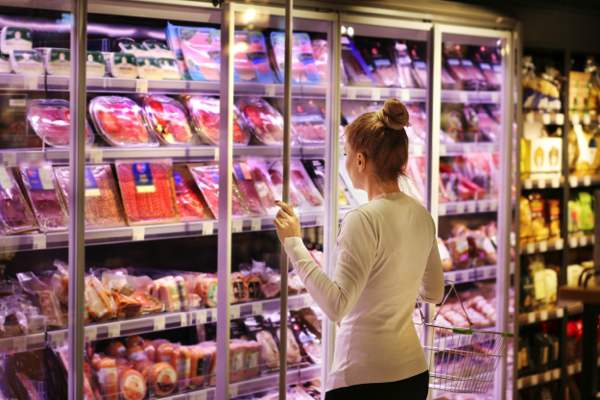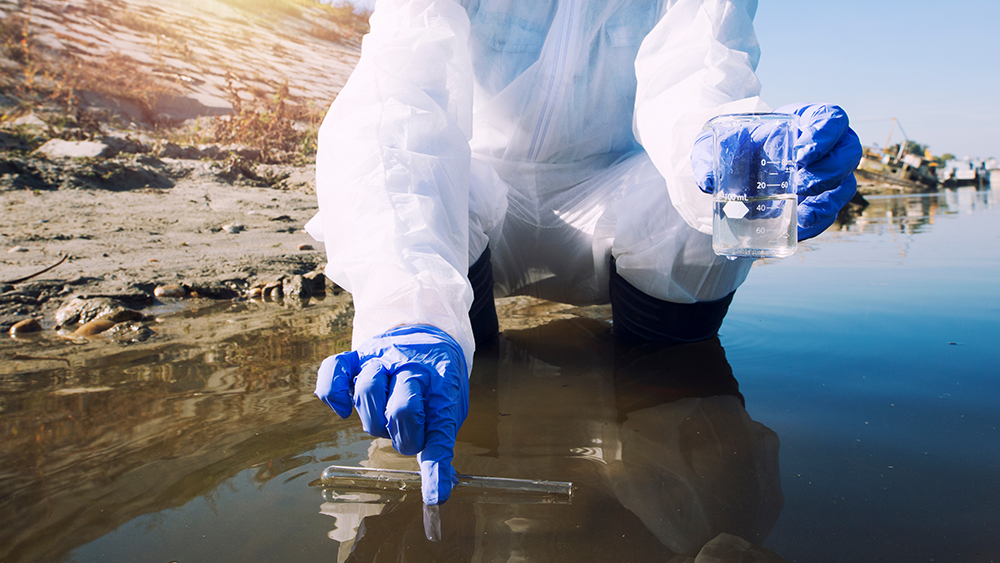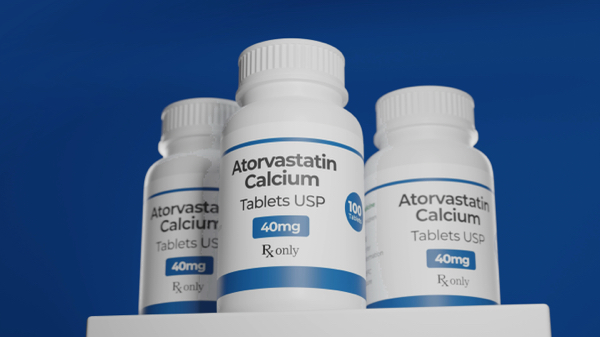Indonesia’s worsening RADIOACTIVE CONTAMINATION crisis threatens global food supply
10/29/2025 / By Ava Grace
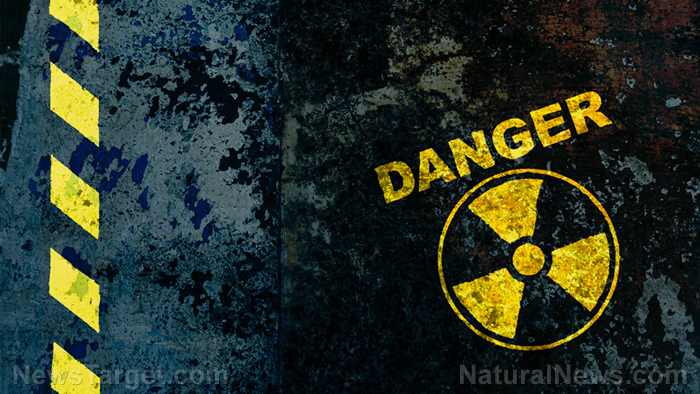
- Traces of radioactive cesium-137 first detected in Indonesian shrimp (August 2025) have now been found in cloves from a farm in Lampung, Sumatra, raising fears of wider food chain contamination.
- Indonesia formed a special task force, inspecting farms and processing plants. Only the Lampung clove farm has confirmed contamination so far, prompting a sales ban pending further testing by Bapeten (Indonesia’s nuclear agency).
- A byproduct of nuclear fission, cesium-137 mimics potassium, allowing absorption into human tissues. Long-term exposure increases cancer risk, with a 30-year half-life, meaning contamination persists for decades. It bioaccumulates in the food chain, posing severe risks via ingestion or inhalation.
- Scrap metal imports are suspected – radioactive materials from discarded medical/industrial equipment may have contaminated machinery used in food processing. Indonesia has halted scrap metal imports until radiation monitoring improves.
- Initial detection came from U.S. authorities, exposing gaps in Indonesia’s export safety checks. The FDA has banned imports from two Indonesian suppliers and will require radiation-free certification for shrimp and spices from high-risk regions.
In a disturbing escalation of a public health mystery, Indonesian authorities confirmed on Oct. 14 that traces of radioactive contamination have been found on a clove farm, expanding a crisis that began with tainted shrimp and now threatens the integrity of the global food chain.
The alarm bells first rang in August when the U.S. Food and Drug Administration (FDA) detected a radioactive isotope known as cesium-137 in frozen shrimp imported from the Indonesian company PT Bahari Makmur Sejati. The contaminated products destined for major retailers like Walmart were intercepted, but the incident prompted an immediate recall and a ban on the company’s imports.
Just weeks later, the FDA announced it had found the same radioactive substance in a sample of cloves from a different Indonesian exporter, PT Natural Java Spice. This second finding transformed a single product scare into a multi-sectoral emergency, forcing the Indonesian government to launch a full-scale probe.
In response, Jakarta formed a special task force, dispatching inspection teams to processing plants and farms across the archipelago. Teams were sent to a facility in Surabaya on Java island, to farms in Central Java, and to the now-contaminated clove farm in Lampung, on the island of Sumatra.
Task force spokesperson Bara Hasibuan revealed that of the locations inspected so far, only the Lampung farm showed confirmed traces of radioactivity. As a precaution, the government has imposed a sales ban on the farm’s cloves pending conclusive laboratory results from Indonesia’s nuclear regulatory agency, Bapeten.
From nuclear reactors to dinner plates
To understand the gravity of cesium-137 contamination, one must look back at some of history’s worst nuclear disasters. Cesium-137 is a radioactive byproduct of nuclear fission, the process that powers nuclear reactors and atomic bombs. It does not occur naturally.
The world became tragically familiar with this isotope, which does not occur naturally, after the Chernobyl disaster in 1986 and the Fukushima meltdown in 2011. These disasters released the isotope in massive quantities, contaminating vast areas of land and sea for generations.
This isotope is particularly dangerous because it mimics potassium, a vital nutrient, which means the human body can absorb it into its tissues. Once inside, it emits radiation that can damage cells and DNA.
The FDA explicitly states that long-term exposure to even low doses of Cesium-137 is linked to a significantly elevated risk of cancer. Its presence in food, therefore, represents a direct and insidious threat to human health – a ghost from the atomic age materializing on the dinner plate.
How the scrap metal trade poisoned the food supply
As the investigation deepens, a prime suspect has emerged: the international scrap metal trade. In a significant revelation, the Indonesian government has suspended all imports of scrap iron and steel. Environment Minister Hanif Faisol Nurofiq announced the move on social media, stating the ban would remain until the country’s monitoring system for radioactive materials is fully strengthened.
This decision points to a terrifyingly plausible scenario. Globally, there have been numerous documented cases of orphaned radioactive sources – often from decommissioned medical or industrial equipment – being accidentally melted down with scrap metal.
These “lost” sources can contaminate entire batches of recycled metal. If such contaminated scrap was used to manufacture machinery or processing equipment in Indonesian food facilities, it could explain how the radioactivity is spreading to unrelated products like shrimp and cloves.
BrightU.AI‘s Enoch explains that cesium-137 contamination “poses significant health risks, including radiation sickness and cancer as cesium-137 is highly toxic and has a long half-life of approximately 30 years. It bioaccumulates in living organisms, particularly in the food chain, and can be particularly harmful to humans through ingestion or inhalation.”
This crisis exposes critical vulnerabilities in the globalized food supply chain. The initial detections were made not by Indonesian inspectors, but by U.S. Customs and Border Protection and the FDA at American ports. This reliance on the importing nation to act as the final line of defense highlights gaps in the export country’s safety protocols.
In response, the FDA is now taking a harder line, banning products from the two implicated Indonesian companies and announcing that, starting in late October, shrimp and spices from certain regions of Indonesia will require special import certification proving they are free of cesium-137.
The unfolding radioactive contamination crisis in Indonesia is a stark reminder that in an interconnected world, a safety failure in one industry – like the poorly regulated scrap metal trade – can cascade into a public health emergency in another, thousands of miles away. As the investigation continues to trace the invisible trail of cesium-137, consumers worldwide are left to wonder what other unseen threats may be lurking in their pantries and whether the systems built to protect them are truly up to the task.
Watch as the Health Ranger Mike Adams discusses frozen shrimp being contaminated with cesium-137 in this edition of the “Health Ranger Report.”
This video is from Health Ranger Report on Brighteon.com.
Sources include:
Submit a correction >>
Tagged Under:
Cesium-137, clean food watch, Cloves, contamination, Dangerous, food collapse, food safety, food supply, frozen shrimp, Indonesia, isotope, Lampung, nuclear, radioactive contamination, stop eating poison, Sumatra, supply chain warning
This article may contain statements that reflect the opinion of the author



